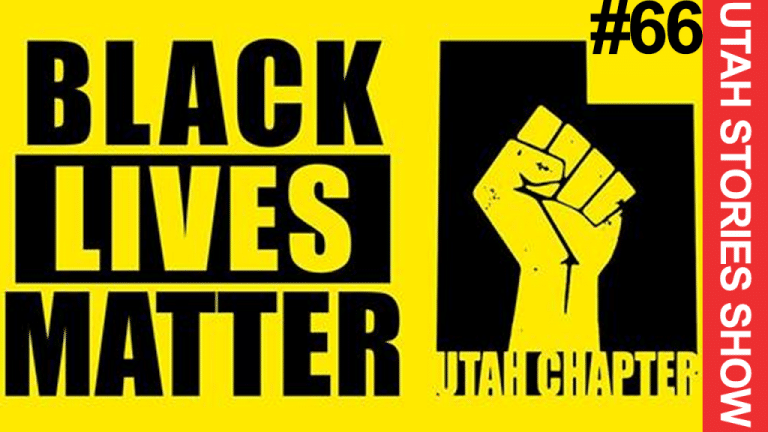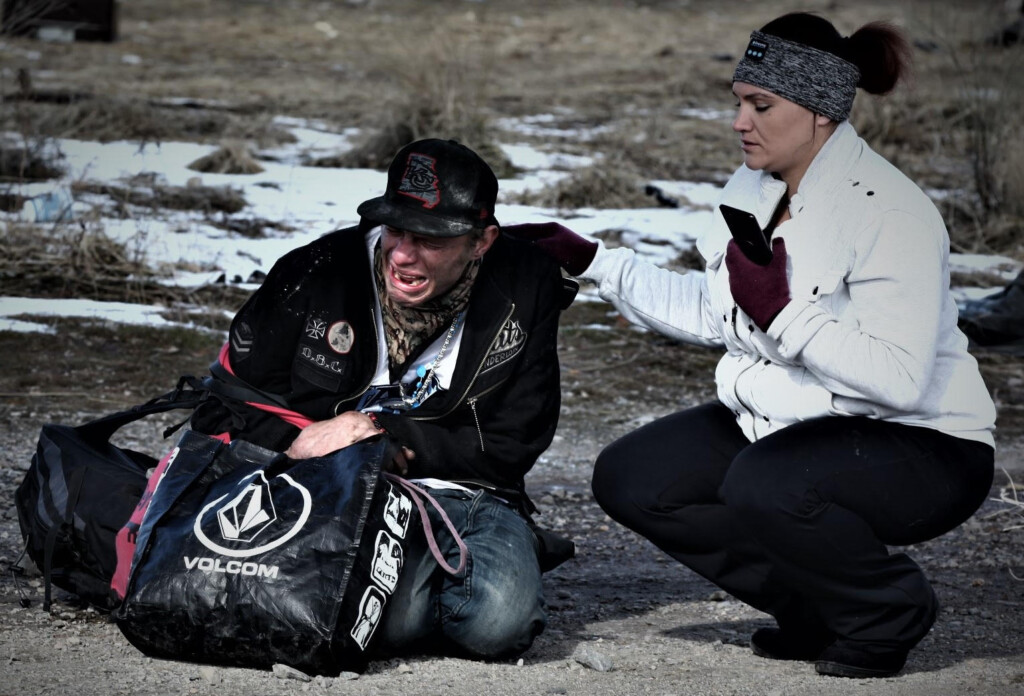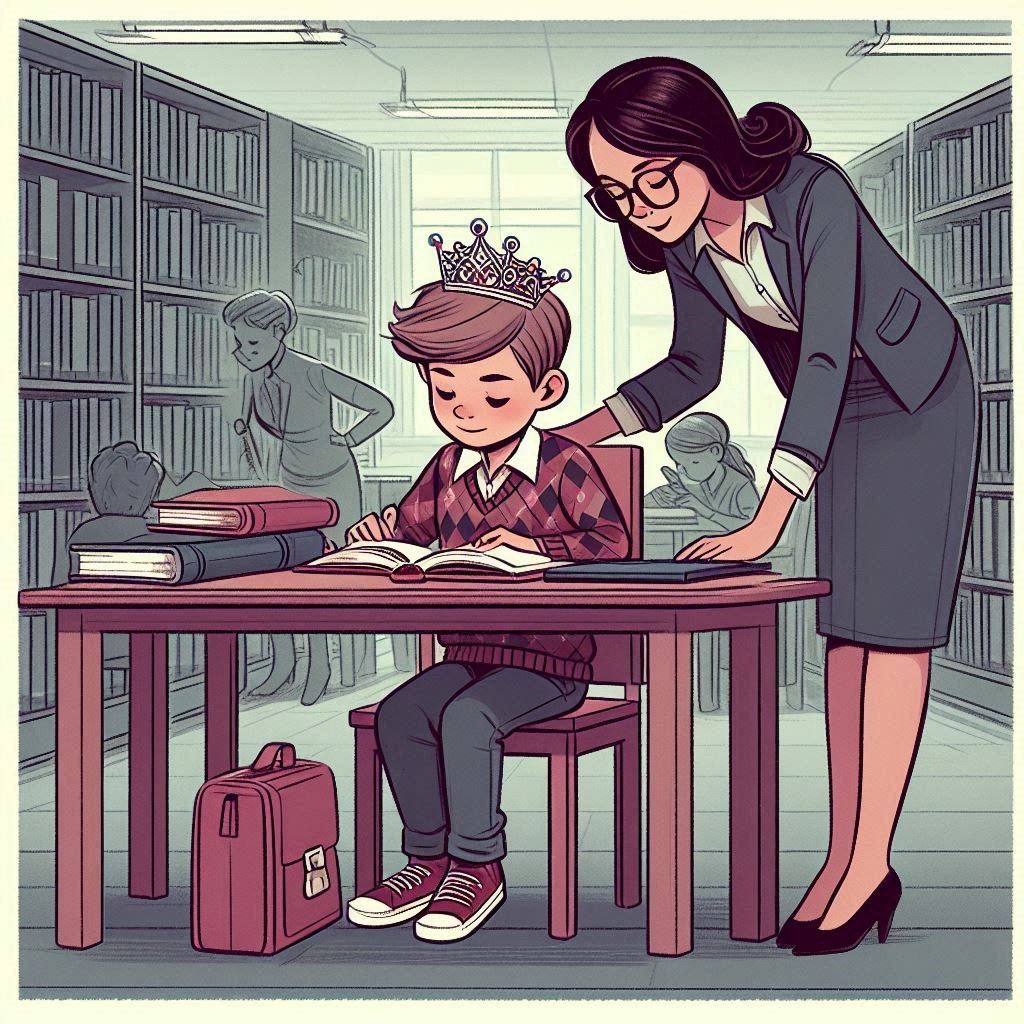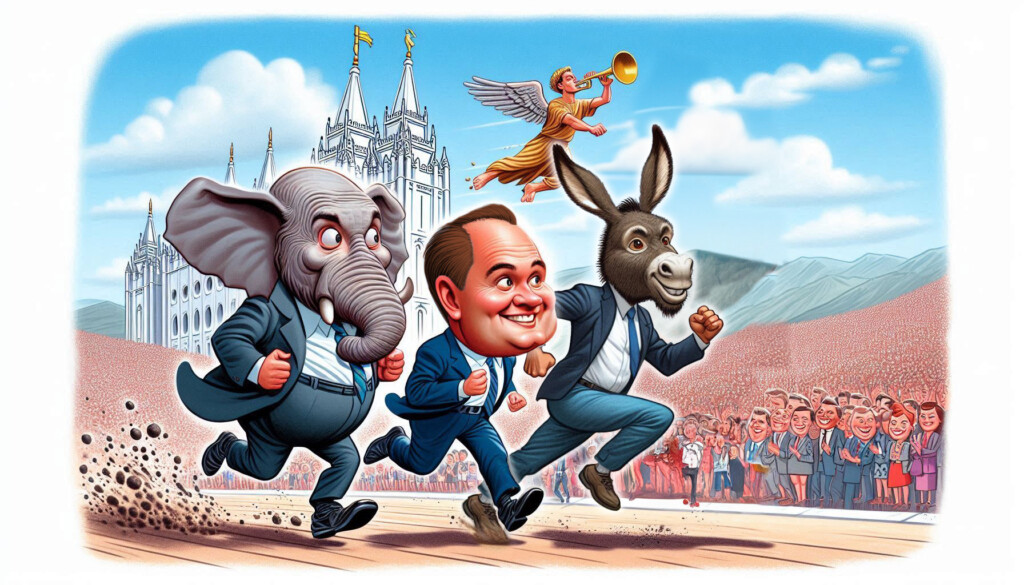“This is the calm before the storm,” said Lex Scott, Director of Black Lives Matter Utah, about the recent riots and violence happening around the country. Scott added. “The racism that has always been here is being revealed on a massive level now.”
WATCH THE VIDEO:
LISTEN TO THE PODCAST:
Lex Scott believes the riots and protests will actually get much worse before they get better. But she says that her organization (Black Lives Matter in Utah), does not condone or support any violent protests or riots.
On May 30th, just after the tragic death of George Floyd, Downtown Salt Lake City erupted into a riot when a police cruiser was turned over and burned. Young men and women are witnessed in Twitter and Instagram videos celebrating among the flames and destruction. The vandalism spread to nearby Trax stations and the public safety (police headquarters) building. Vandalism extended to the Utah State Capitol,
Speaking to this level of vandalism and violence in Salt Lake City, Scott said, “I want to make it clear that was not Black Lives Matter, that had nothing to do with Black Lives Matter. We don’t incite violence, we don’t destroy property.” Subsequent protests were led and organized by Black Lives Matter and other groups in Salt Lake City and for nearly 40 days there were daily protests, a few of which resulted in skirmishes with police and extensive vandalism. But what has happened in Salt Lake City is tame in comparison to other cities around the country.
Scott has traveled to Minneapolis, Portland, and other hotbeds to participate in protests held in these areas. Scott says that what we are watching on the news compared to what is actually happening in the places, as witnessed on the ground are two very different stories.
Lex Scott talked about what she has witnessed recently in Portland. “I saw a gas station on fire…I saw an Office Max that was lit on fire and getting looted.” Scott said that when she witnessed these acts (committed not by blacks but started by white people) she was compelled to try to get involved and tell the rioters that looting and destruction weren’t the answer, but she determined that it would be far too dangerous to enter a burning building.
Scott says she has witnessed many of these protests in places such as Minneapolis begin as peaceful demonstrations with nothing violent happening, where the police then instigate the violence by “shooting tear gas and rubber bullets into the crowds.”
Scott says concerning Salt Lake City’s riot, “It hurts our movement. It’s ridiculous that it happened. We understand that the riot is the language of the unheard. You can replace a building or a police car, you can never replace Freddie Gray, Mike Brown, Bobby Duckworth, George Floyd, Breonna Taylor.
“I like to say, if you watch a building burn and it upsets you more than watching George Floyd die, then you are the problem.”
In our hour-long discussion, we get into many of the misconceptions that suburbanites and whites have about the Black Lives Matter Movement. Scott also states all of the criminal justice reform objectives that Black Lives Matter Utah would like to see. “I’ve been protesting for seven years, I’m sick of protesting. Let’s pass some police reform.”
RELATED STORY:
Getting to the Heart of Black Lives Matter Movement
FOR MORE UTAH STORIES PODCASTS GO HERE.
![]()

![]()






